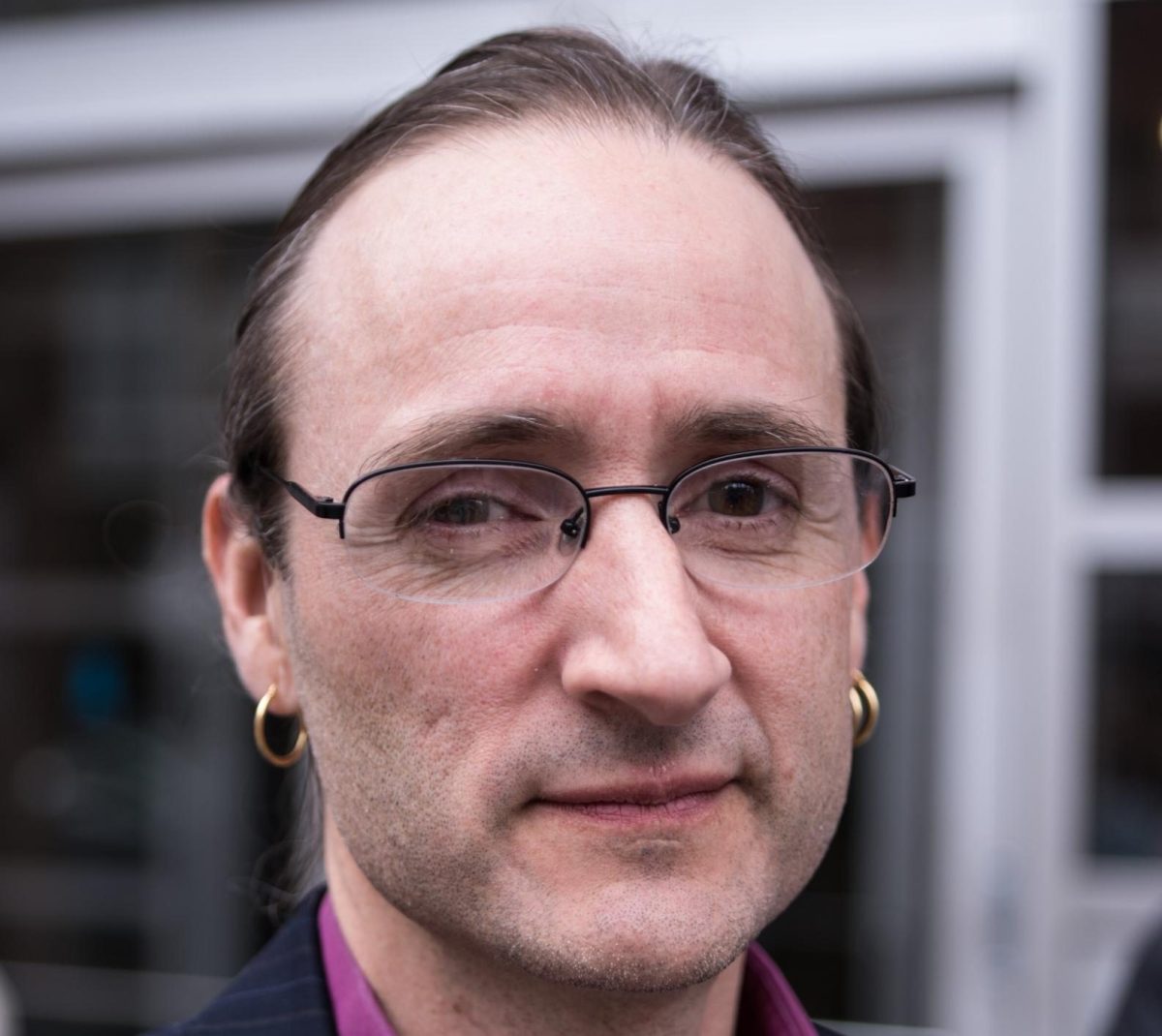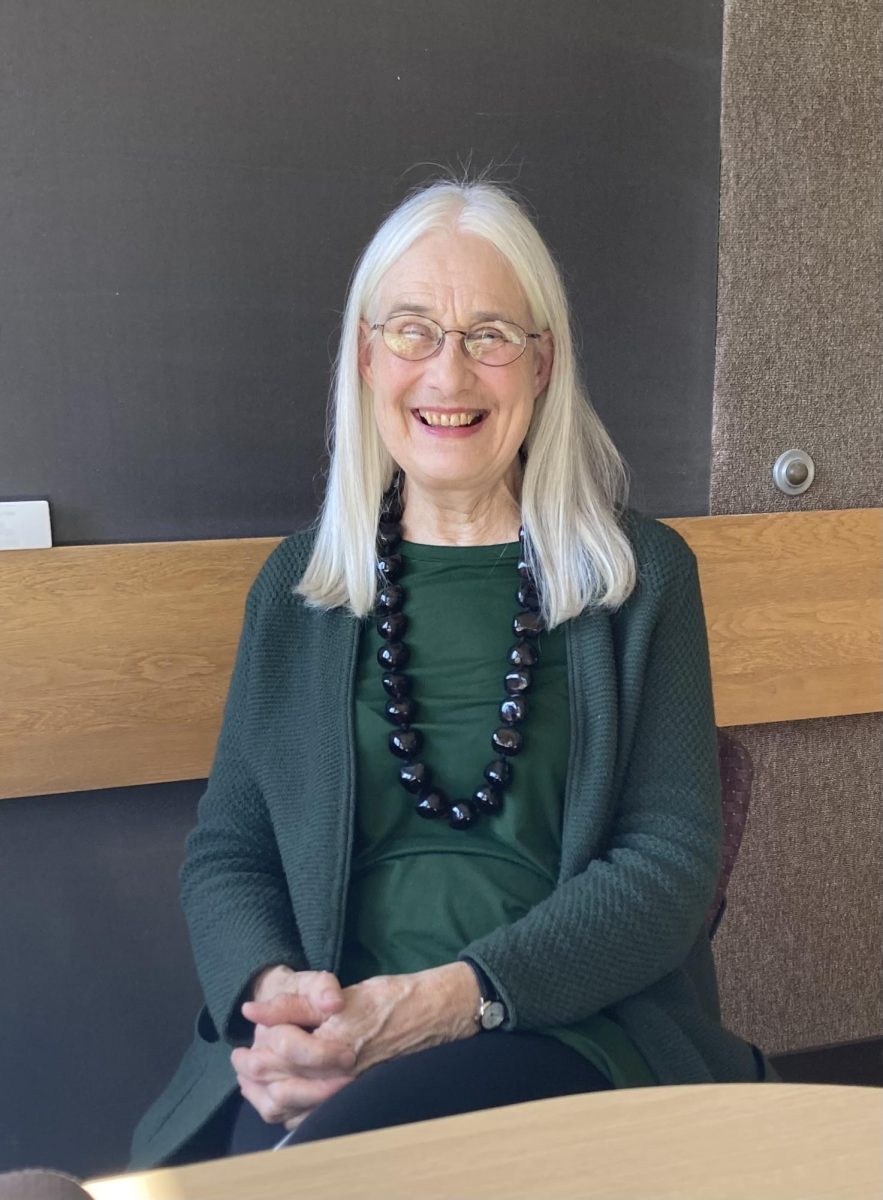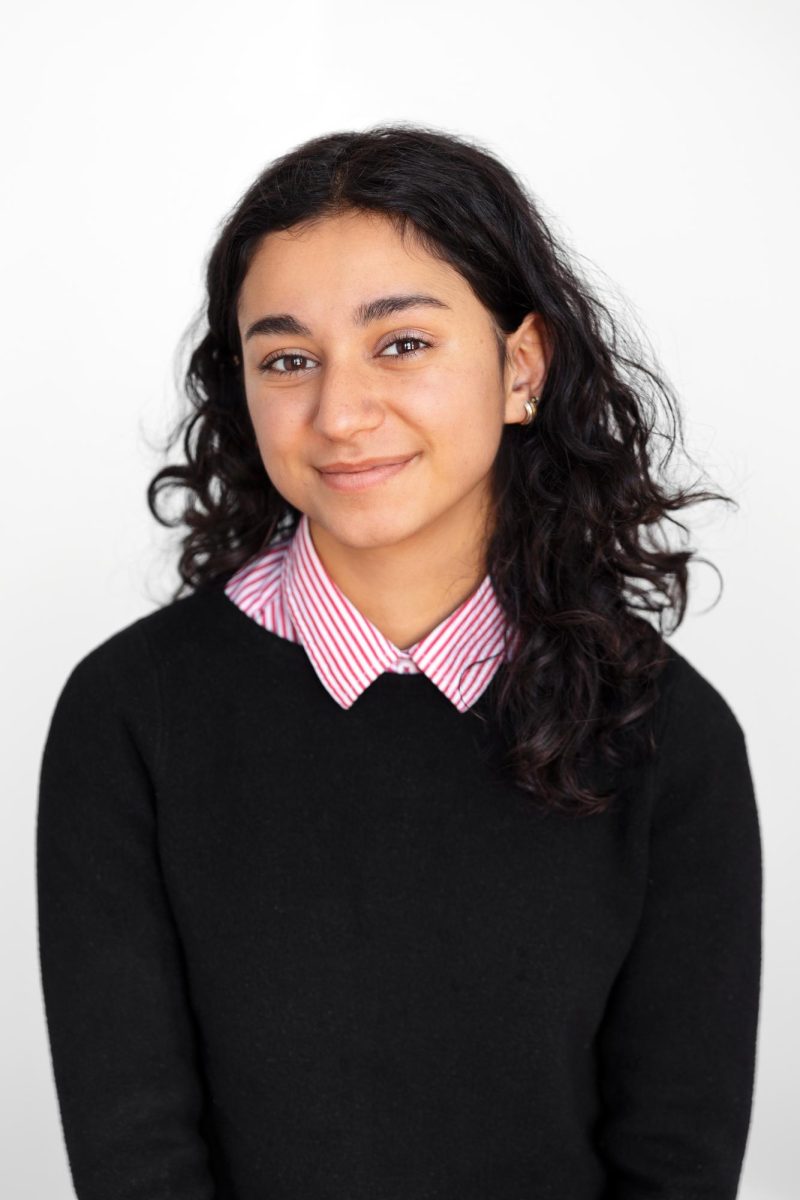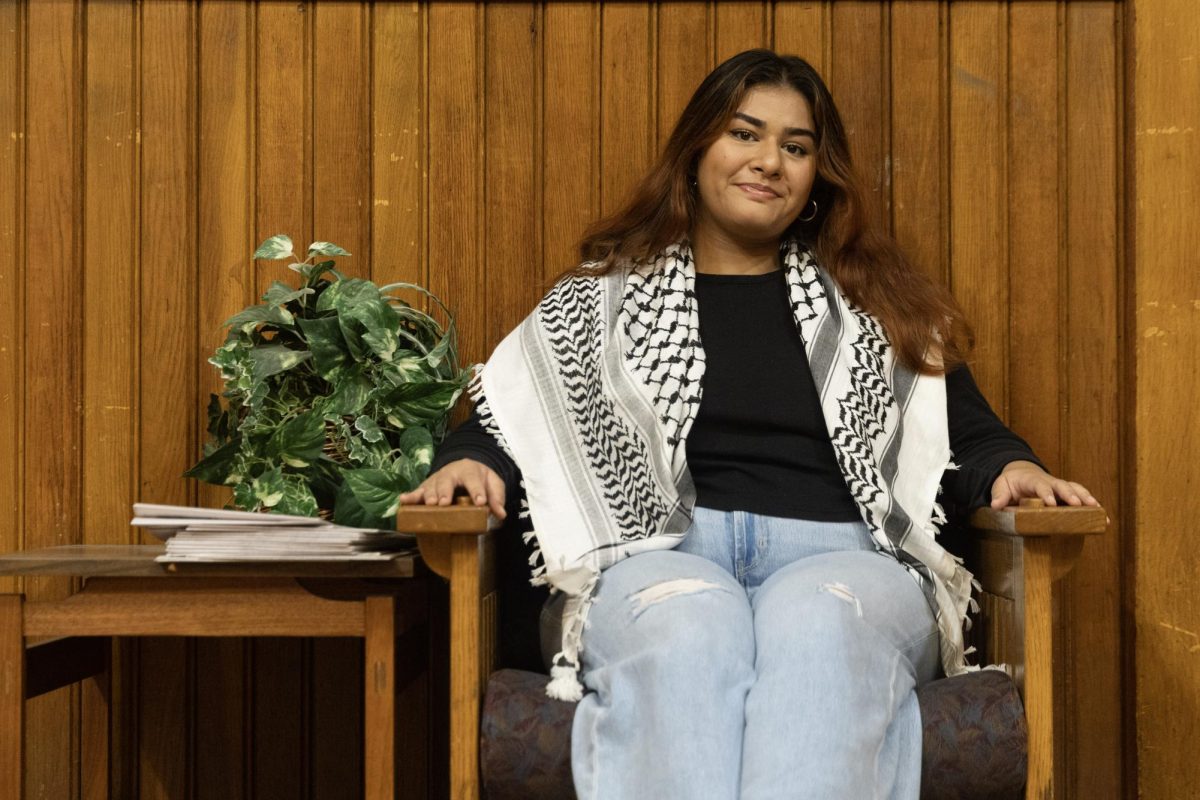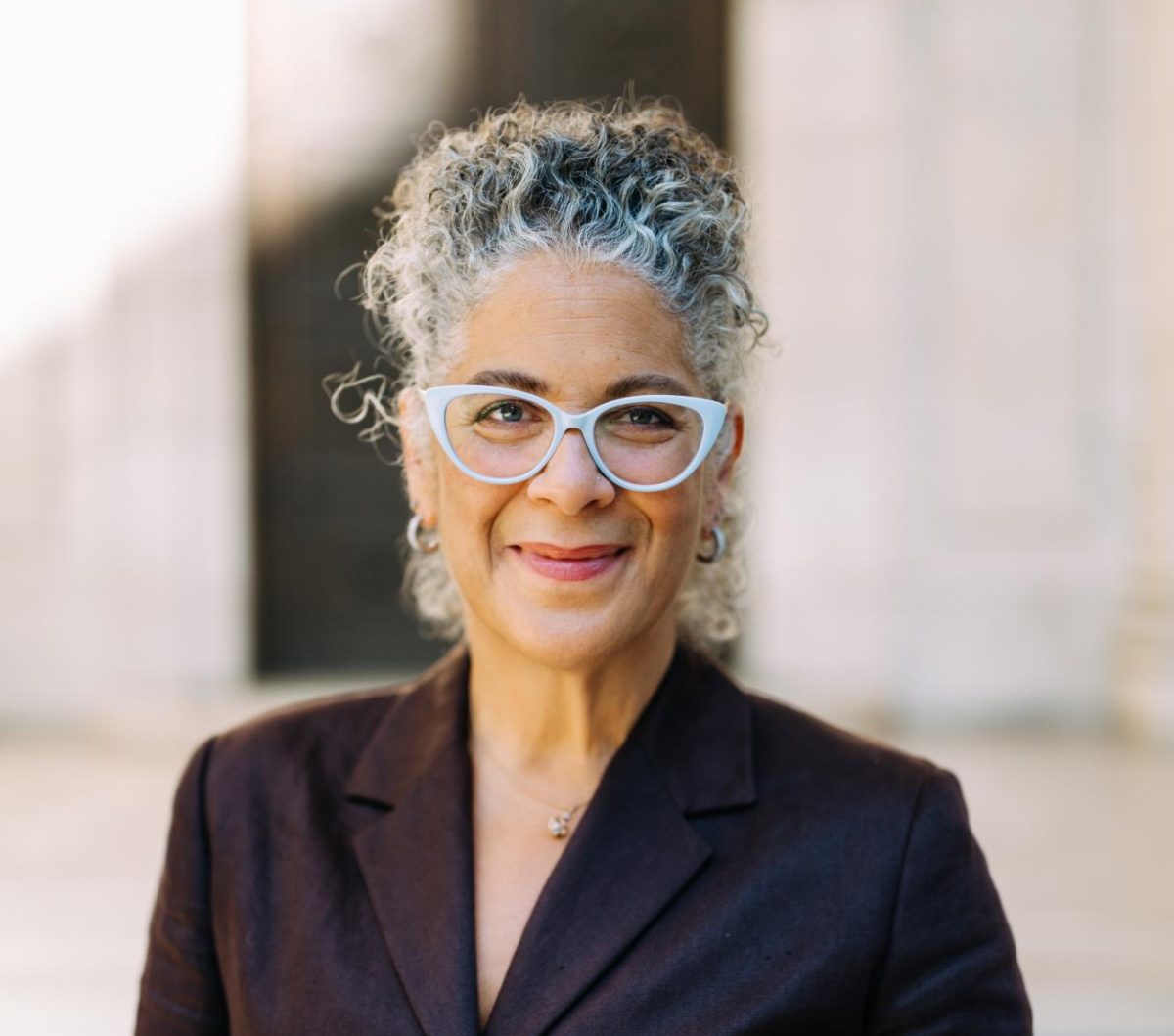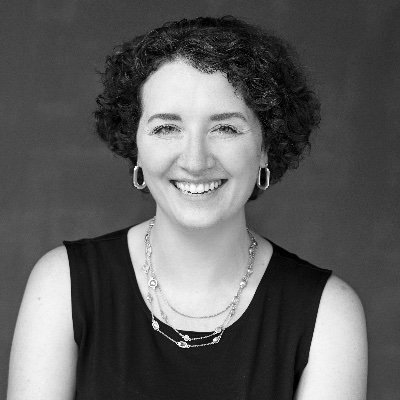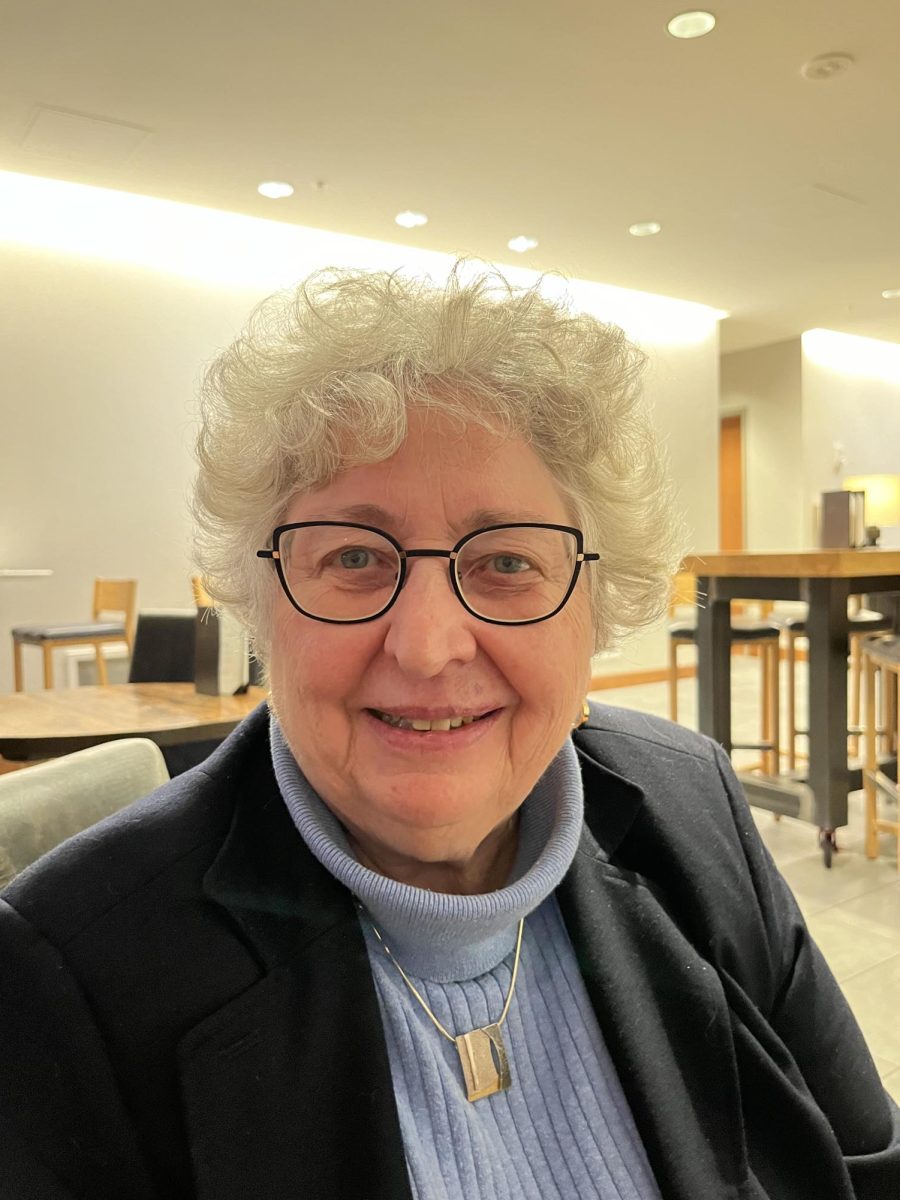Thomas M. Keck, OC ’92, is the Michael O. Sawyer Chair of Constitutional Law and Politics at the Syracuse University Maxwell School of Citizenship and Public Affairs and a Senior Research Associate at the Campbell Public Affairs Institute. He delivered the annual Oberlin Constitution Day Lecture on Wednesday. His research focuses on courts and constitutional law. His ongoing book project is about the way that courts have responded to free speech litigation in backsliding democracies, which was the focus of his talk.
This interview has been edited for length and clarity.
Could you tell me about your time at Oberlin and how it has impacted the work that you currently do?
In hindsight, it looked like a pretty straight path, but at the beginning of it, I did not really know where I was going. I came to Oberlin, and I didn’t really have any idea what I wanted to study. I took a wide range of classes the first few semesters and stumbled into political science. I went to grad school for political science, and now I teach constitutional law at Syracuse. So for sure, the academic foundations here set me on what looks like a pretty clear and straight trajectory. But I didn’t know I wanted to be a professor. I took a lot of different courses. I took a lot of women and gender studies courses. I took some history courses, but the political science stuff really drew me in. And then I graduated in ’92 still without a super clear path. I just sort of took a year of working, figuring out what I wanted to do, and applying to grad school. But once I was in grad school, I was like, “Yeah, I really like this stuff,” and “I can picture this path.”
Apart from academics, I played ultimate Frisbee for four years, so I’m a big fan of club sports. It’s a great way for lots of students to keep engaging in athletics in a way that’s healthy for body and mind, but also, it’s like a student-run organization that teaches you so many skills. We had to do conflict resolution. We had to do budgeting and planning. We had to plan our own in-game strategy. We did not have a coach. Back then, we had to plan all our travel, and we had to try to get more resources out of the College.
I lived in a dorm called Third World House. This was a dorm with a sort of multicultural, racial diversity, social justice mission. I lived there for several years, and that was a formative experience for me here as well. When I arrived at Oberlin, I already had pretty vague but established left/liberal political sensibilities. My parents had conventional day jobs by the time I was growing up, but they had an activist background that I heard about sometimes. It was anti-war, anti-Vietnam stuff, and the early second-wave women’s movement for my mom. But none of my activism was super well formulated. I think the experience of doing hard but important work in racially diverse settings, struggling through conflict, and working towards some common goals was really good for me and for my subsequent activism. So in Syracuse, I’ve done some anti-Trump organizing, Indivisible movement stuff, and local grassroots electoral stuff. Sometimes those are predominantly white settings, and sometimes they’re racially diverse settings. Conflicts emerge in all of the settings, but there’s a certain kind of conflict that sometimes emerges within a racially diverse setting, with well-intentioned but clueless white liberals in the mix. I think having some sort of experience as a 19–20 year old working through some of those conflicts in productive ways with a modicum of guidance and support from the university people was really valuable for me.
Could you tell me about the kind of work that you do in constitutional law and political science?
I’ve studied U.S. courts for a long time. I have a couple of books. The first one is about the U.S. Supreme Court, from the New Deal era up through the Rehnquist Court toward the end of the 20th century. The second book is about courts more broadly in the U.S. I look at a lot of state courts and lower federal court decisions, and it’s looking at the sort of role of courts in resolving polarizing culture war conflicts like abortion, affirmative action, LGBTQ+ rights, and gun rights. So that was the beginning part of my career. More recently, I’ve been doing a lot of cross-national work.
Right now, I’m writing a book about the judicial response to free speech claims under conditions of democratic backsliding globally. I’ve been collecting data on free speech decisions issued by courts, and the ones that I’ve looked at most closely so far are the U.S. courts and the European Court of Human Rights. We also have data on India and Brazil.
Could you tell me about the Constitution Day talk entitled “Free Speech And Democratic Backsliding In The Contemporary U.S.” that you will be giving today?
Democratic backsliding is an obsession of political scientists these days. It’s a well-documented problem that’s afflicting democracies around the world. It means a decline in democratic health. But the overall picture is pretty clear that over the past decade or two, there’s been a measurable decline in the health of democracies worldwide, and it’s happening in countries as diverse as the U.S., Brazil, India, Turkey, Hungary, and Poland. A big part of that story is about free speech. If you look at the cross-national data that measures the health of democracies, there’s lots of different things that are getting worse or under threat, but clearly one of the big categories is civil liberties and free expression. If you think about the relationship between these two concepts, free speech and democratic backsliding, it’s clear that autocratic leaders restrict freedom of expression in lots of recurring ways, whether it’s the speech of opposition politicians and protesters or relatively powerless minorities — such as religious minorities in India, for example — or independent media and universities — such as in the huge crackdowns on academic freedom in Brazil, Turkey, and elsewhere. So that’s a set of threats to free expression that we might hope courts would help check. So if we have a democracy that hasn’t collapsed all of a sudden — it’s just incrementally less democratic — there are still functioning supreme courts, right? Then when the autocratic leader tries to crack down on academic freedom or freedom of the press or the right to protest, you hope the courts will step in and check that, right? At the same time, you also have pro-democratic actors doing the same thing. So if you think about the democratic opposition to Viktor Orbán in Hungary, or to Narendra Modi in India, or to Jair Bolsonaro in Brazil, they regularly call for speech restrictions, too. Because under conditions of democratic backsliding, there are all kinds of speech that seem to be contributing to democratic backsliding, such as hate speech or election subversion. If you’re a pro-democratic actor in Brazil trying to help end the Bolsonaro regime and recover from it, you might be inclined to urge some restrictions on false election-related speech on social media. So the focus of the book is: how do we think courts are going to respond to both clearly anti-democratic speech restrictions and at least arguably pro-democratic speech restrictions? Do we want them to respond in the same way? Do we think they will respond in the same way?


